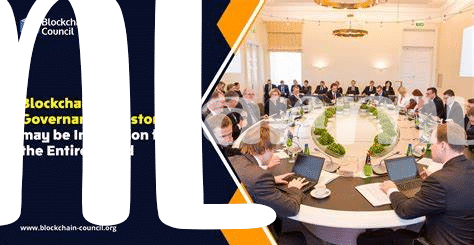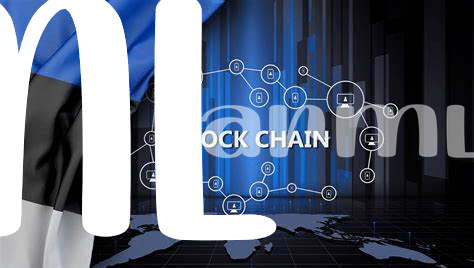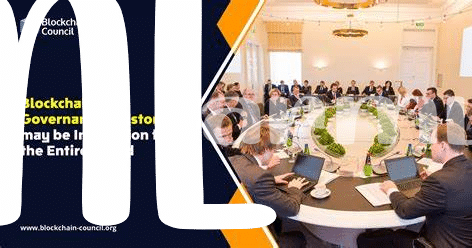Estonia’s Pioneering Use of Blockchain Technology 🌐

Estonia has been at the forefront of utilizing blockchain technology in healthcare, paving the way for innovative solutions in data management. With its pioneering approach, Estonia has set a global example in harnessing the power of blockchain for securing health records and improving accessibility. This cutting-edge technology has not only bolstered data integrity but also streamlined processes, leading to more efficient healthcare delivery and patient-centered care. Estonia’s bold step in embracing blockchain technology is reshaping the future landscape of healthcare, setting a remarkable precedent for countries worldwide to follow suit and revolutionize their own healthcare systems.
Improved Data Security and Patient Privacy 🔒
Estonia’s adoption of blockchain technology in healthcare has significantly bolstered data security and patient privacy. By leveraging the decentralized nature of blockchain, sensitive medical information is encrypted and stored securely, reducing the risk of unauthorized access and potential breaches. Patients can have greater control over who can view their data, ensuring confidentiality and trust in the healthcare system. This innovative approach not only enhances the protection of personal health information but also lays the foundation for a more transparent and secure healthcare environment.
Furthermore, implementing blockchain in health data management streamlines processes, enabling healthcare providers to access accurate information efficiently. Patients can benefit from improved care coordination and faster diagnosis, ultimately enhancing the overall quality of healthcare services. With a focus on data security and patient privacy, Estonia’s pioneering use of blockchain technology sets a precedent for modern healthcare systems worldwide, emphasizing the importance of safeguarding sensitive information in a digital age.
Efficiencies in Healthcare Management and Access ⏳

Estonia’s advancement in blockchain technology has redefined the landscape of health data management, paving the way for improved efficiencies in healthcare management. The integration of blockchain ensures seamless access to patients’ records and enables real-time updates across the healthcare system. This streamlined process not only enhances the coordination of care but also facilitates quicker decision-making, ultimately leading to improved patient outcomes and satisfaction levels. The innovative use of blockchain technology in healthcare management opens up a myriad of possibilities for optimizing resource allocation, reducing administrative burdens, and enhancing overall access to quality care.
Potential Challenges and Obstacles to Adoption ⛔

Estonia’s innovative approach to healthcare management through blockchain technology presents promising advancements, yet it also faces considerable challenges in widespread adoption. Ensuring interoperability among existing systems, addressing regulatory concerns, and building trust in new technologies are key hurdles to overcome. In addition, the financial investment required for infrastructure updates and staff training poses practical difficulties for healthcare institutions. Navigating these obstacles demands collaborative efforts between policymakers, healthcare providers, and technology experts to create a supportive environment for integration. Despite the complexities involved, the potential benefits of enhanced data security and streamlined processes underscore the importance of addressing these challenges head-on. Discover more about the evolving landscape of blockchain technology innovation policies in Equatorial Guinea at blockchain technology innovation policies in Equatorial Guinea.
Impact on Global Healthcare Systems and Policies 🌍
Estonia’s pioneering use of blockchain technology in healthcare has the potential to significantly impact global healthcare systems and policies. By implementing blockchain for health data management, Estonia sets a precedent for other countries to explore innovative solutions that enhance data security, streamline processes, and prioritize patient privacy. This shift towards digitalizing healthcare systems could lead to increased collaboration among countries to establish new standards and regulations for data management, ultimately transforming the way healthcare is delivered and regulated on a global scale.
Future Outlook and Possibilities for Innovation 🚀

In the realm of healthcare, innovation and possibilities for the future are vast and promising. With the continued evolution of technology and data management systems, the healthcare landscape is poised for significant advancements. Innovations in blockchain technology hold the key to transforming traditional methods of health data storage, security, and accessibility. By integrating blockchain into healthcare systems, new opportunities for streamlined processes, enhanced patient care, and improved outcomes emerge. This shift towards blockchain-driven healthcare solutions opens doors for unprecedented levels of efficiency, transparency, and collaboration within the industry. As we look towards the horizon, the future of healthcare innovation shines bright with the potential for groundbreaking developments that can revolutionize the way we approach and deliver healthcare services globally.
To delve deeper into how countries are embracing blockchain technology to drive innovation in healthcare policies and practices, we can look at examples like the blockchain technology innovation policies in the Dominican Republic and compare them with initiatives in other regions, such as Egypt. These strategic efforts aim to leverage the power of blockchain to create more efficient and secure healthcare systems, enhancing the quality of care provided to individuals and communities alike. By exploring and implementing innovative solutions like blockchain technology, countries can pave the way for a future where healthcare is not just reactive but proactive, data-driven, and patient-centric. Exciting opportunities lie ahead as we pave the path towards a healthcare landscape that is more connected, efficient, and responsive to the evolving needs of society.
